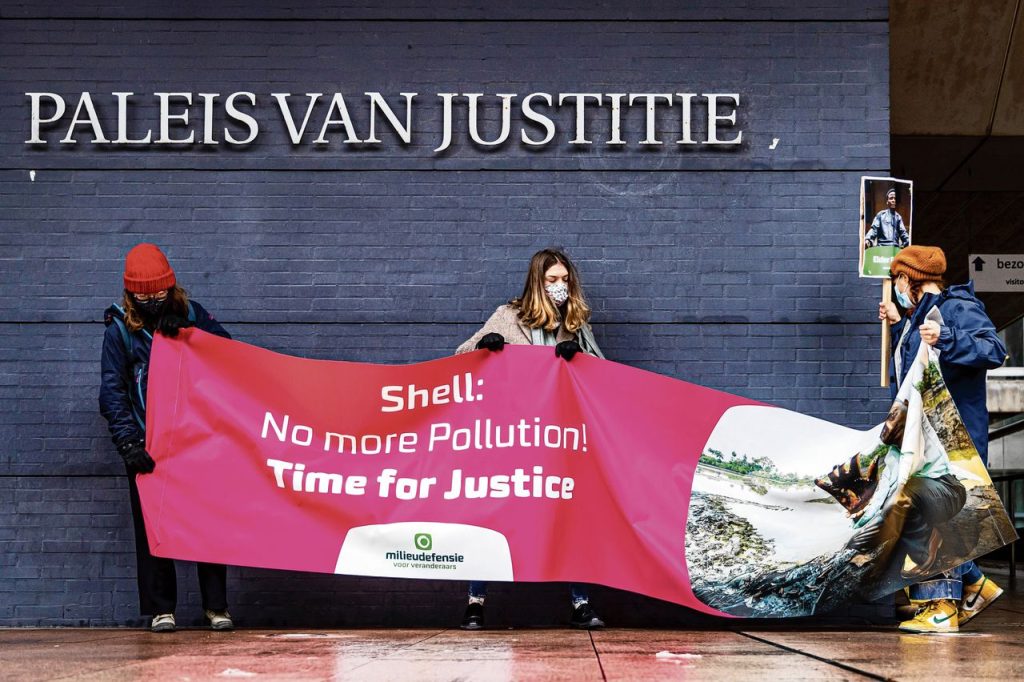As unprecedented natural disasters continue to devastate communities worldwide, the race to limit the rise in global temperatures is more pressing than ever. NGOs and environmental groups have long been engaged in this fight – both in and outside of courtrooms. A recent case out of the Netherlands, suggests that when it comes to holding those corporations responsible for climate change accountable, efforts to establish a private law duty of care may offer a winning strategy.
In 2020, Urgenda Foundation v. The State of the Netherlands served as a landmark decision for those fighting climate change in the courtroom. The Supreme Court of the Netherlands found that in failing to reduce greenhouse gases, the Dutch government was in contravention of its duty of care under Articles 2 and 8 of the European Convention on Human Rights. The Court’s reasoning largely relied on the Dutch constitution and international law in arriving at its decision.
More recently, in Sharma v. Minister for the Environment in Australia, the Court found that the Federal Minister for the Environment owed a novel duty of care to Australians under the age of 18 who may suffer harm from the climate change implications of an open-cut coal mine.
When it comes to holding large corporations accountable, NGOs and civil society groups have moved towards arguing a “duty of care” for large corporations as well. Results in a recent case against Shell in the Netherlands suggest this is another potentially winning strategy when bringing climate change litigation against actors who contribute significantly to climate change.
In Milieudefensie et al. v. Royal Dutch Shell PLC, the court found that Royal Dutch Shell is obliged to reduce the CO2 emissions of the Shell group’s activities by net 45% at end of 2030, relative to 2019, through the Shell group’s corporate policy. This includes a “best-efforts” obligation to reduce or prevent the CO2 emissions of business relations, including end-users.
The company’s reduction obligation ensues from the unwritten standard of care in the Dutch Civil Code. The standard draws from the Kelderluik criteria (a judgment of the Supreme Court of the Netherlands establishing factors to consider in situations of negligence, similar to the “Learned Hand” formula applied in Anglo-American legal systems). The standard also draws on human rights, specifically the right to life, and respect for private and family life. Additionally, soft law endorsed by Royal Dutch Shell, such as the UN Guiding Principles on Business and Human Rights, the UN Global Compact and the OECD Guidelines for Multinational Enterprises all contributed to the interpretation of the unwritten standard of care.
The decision against Shell suggests the door is open for NGOs and civil society groups in other jurisdictions to push for establishing a duty of care between corporations and the citizens their actions affect. This is especially important given that efforts to hold corporations accountable to their Environmental, Social and Corporate Governance (ESG) commitments are increasingly common, but have yet to prove very effective. Soft law at the international level has also proven difficult when it comes to corporate accountability. However, the argument for duty of care in Milieudefensie, pointed to an endorsement of soft law instruments, such as the UN Guiding Principles on Business and Human Rights, which are endorsed by Shell.
While not legal swords in and of themselves, this suggests that these soft law instruments may be useful to incorporate into a duty of care argument. Litigation establishing a duty of care between governments and citizens to reduce greenhouse gas emissions signals a fundamental shift and victory for those who have long been fighting to have the implications of climate change taken seriously by their own governments. While government accountability is a critical step in the fight to stop the rise in global temperatures, the fact remains that large corporations in the areas of energy, agriculture, and mining are having a devastating impact on the climate. Establishing a duty of care between these corporations and citizens offers hope that both governments and corporate entities will be held accountable for their impacts on the climate. The hope is that this two-pronged approach, combined with continued litigation to establish a duty of care to curb climate change in other jurisdictions, will force both governments and corporations to finally take climate change seriously.










